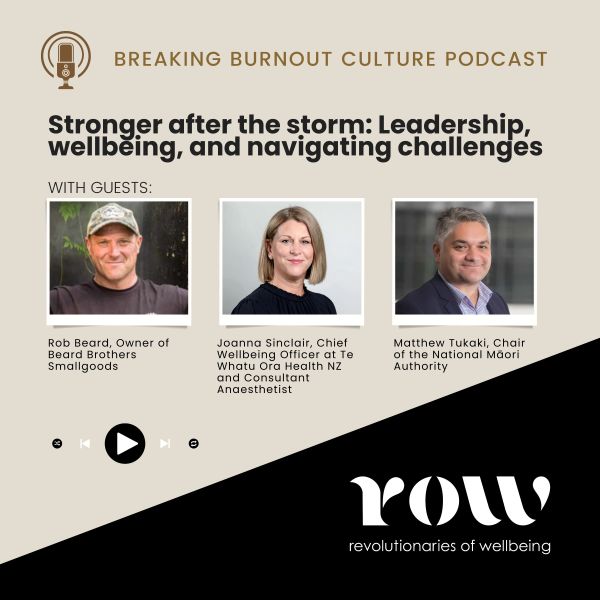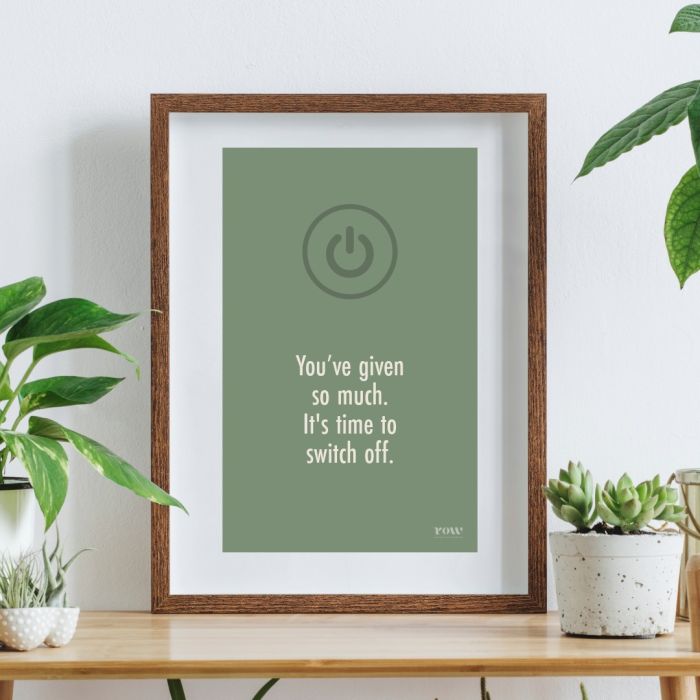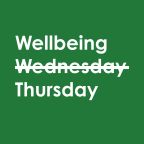What if the key to ending burnout culture is in the stories of those who’ve lived it and come out the other side?
In this powerful episode of the Revolutionaries of Wellbeing podcast, three prominent New Zealand leaders open up about their personal journeys through crisis and recovery.
In this episode, we’re joined by:
- Joanna Sinclair, Chief Wellbeing Officer (then National Clinical Lead for Employee Wellbeing) at Te Whatu Ora Health NZ and Consultant Anaesthetist,
- Rob Beard, Owner of Beard Brothers Smallgoods, and
- Matthew Tukaki, Chair of the National Māori Authority
This is a real and honest conversation about the toll of burnout, mental health struggles, and physical challenges on leadership. Our guests share their personal experiences, what helped them recover, and why self-care matters – especially for leaders. We’ll also talk about practical ways to support employees through tough times.
We also touch on suicide in this episode, so if anything feels heavy, please reach out to your trusted people or call a local support helpline. As our guests say, these conversations matter.
“You can’t afford as a leader not to look after yourself. And actually you’re then role modelling that behaviour to the people that you lead… If I talk about sometimes things are challenging, then you can talk about sometimes things are challenging as well.”
– Jo Sinclair
Listen on your favourite platform
Discover the ROW Workplace Wellbeing Podcast on popular platforms such as Spotify, Apple, Amazon Music/Audible and iHeartRadio.
We value your feedback! Please consider leaving a review on your preferred podcast platform, such as Apple Podcasts or Spotify. Let us know what you enjoyed most about this episode.
Where to get help
If you find the content of this story upsetting or need support, it’s completely normal and a positive step to seek help. Taking this step can be daunting, but it’s important. Please visit the website HelpGuide for helplines in your country, or contact your workplace’s Employee Assistance Program (EAP).
Episode insights
Episode Summary
Key points
This episode covers:
- All three guests shared personal experiences with burnout, mental health crises, and their recovery processes.
- The discussion highlighted early warning signs of burnout that were often missed or ignored.
- Recovery strategies and workplace support mechanisms were explored in depth.
- The importance of leaders modelling self-care and creating psychologically safe environments was emphasised.
Detailed summary
Introduction (00:04-02:01)
Sarah McGuinness, founder of Revolutionaries of Wellbeing, kicked off the podcast about breaking burnout culture. Sarah mentioned the episode would touch on suicide and encouraged listeners needing support to reach out.
Personal Stories of Burnout and Crisis (02:01-13:34)
Joanna Sinclair’s experience (02:01-06:19)
Joanna, an anaesthetist, shared how she experienced significant burnout despite knowing the risks. She didn’t recognise her own burnout until noticing disconnection from patients and compassion fatigue. A difficult case that went badly became her crisis point, reinforcing her negative self-perception that she “wasn’t good enough.” Her recovery involved deliberately choosing to reconnect with patients rather than withdraw, helping her rediscover joy in medicine. She emphasised that “choosing compassion” alongside professional help was central to her recovery.
Rob Beard’s journey (06:34-08:58)
Rob described starting his business with his wife in a shipping container after leaving the wine industry. Despite business success, he experienced severe burnout leading to a suicide attempt. Rob had previously suffered a heart attack at 38 and lost his sister to suicide in 2011. He expressed gratitude for still being alive and stressed the importance of reconnecting with what you love.
Matthew Tukaki’s medical crisis (09:27-13:34)
Matthew survived a massive aneurysm and stroke that left him in a coma. When he woke, he couldn’t walk, talk, or see. He described his physical trauma, including having part of his skull removed and facing a difficult recovery. Matthew reflected on his previous work in suicide prevention and with the Ministry for Children, noting these roles had caused him “great grief.” He emphasised that his health crisis affected his entire family, not just him.
Warning Signs Before Crisis (14:15-20:58)
Rob’s warning signs (14:21-16:40)
Rob identified sleep deprivation as his primary warning sign, getting only two hours of sleep nightly before his breakdown. He described wearing insomnia “almost like a badge of honour” while his mind “switched into a whole separate world.” After his heart attack at 38, he gave up drinking and made lifestyle changes but then pushed himself harder with his newfound energy. He took on too much and didn’t ask for help.
Matthew’s warning signs (16:40-18:34)
Matthew became complacent about his health, stopped taking his blood pressure medication, and developed a sense of invincibility. He identified “shadow boxing” as a major issue – creating problems that weren’t real and obsessing over them. He acknowledged taking on too much work too quickly, particularly moving from the Orangatamariki job directly to suicide prevention work.
Joanna’s warning signs (18:34-20:58)
Joanna recognised imposter syndrome as an early warning sign, which intensified after completing her specialist training. She noted that the transition to her first consultant job was the first time she’d paused to reflect on her career path. She advised others to put “protections” around major career transitions, such as professional supervision or coaching, to manage feelings before they become unmanageable.
Recovery Journeys (21:19-37:41)
Matthew’s recovery approach (21:19-24:52)
Matthew emphasised not relying solely on the healthcare system for recovery. He set simple goals, starting with just getting out of bed. He noted the importance of having multiple support networks rather than depending on one person or group, as initial support often diminishes over time. Matthew created a structured approach to recovery with a mix of easily achievable goals and longer-term challenges to maintain positivity.
Rob’s recovery journey (24:52-31:24)
Rob contrasted his quick return to work after his heart attack (working “full steam” within two weeks) with his mental health breakdown. He described being in “locked in mode” before his suicide attempt. His recovery began with being “almost vegetative” for four weeks, unable to engage in activities he loved. Rob described gradually reintegrating into society through meditation, talking to the right people, and “retraining my whole brain to live life again without the demons.” He now recognises when depression is approaching (“dark clouds coming”) and implements strategies including increased exercise and reconnecting with what he loves.
Joanna’s recovery experience (31:30-37:41)
Joanna acknowledged the support from colleagues who offered to be “a second pair of hands” when she returned to work. She highlighted the challenge of accepting help in medical culture, which “strongly values stoicism.” Doctors are trained to “push things down and move on to the next patient,” making vulnerability difficult. She described coaching herself through accepting help on her first shift back, recognising that patient safety required her to overcome her reluctance to appear vulnerable.
Advice for Leaders and Workplaces (40:04-45:43)
Matthew’s advice (40:04-43:40)
Matthew emphasised considering the impact on an employee’s family and friends during recovery. He recommended creating space for people to share experiences without judgment and adapting work environments to support reintegration. Matthew highlighted the importance of supporting spouses and partners, sharing that his own relationship broke down during his recovery as his partner struggled with the impact of his health crisis.
Joanna’s advice (43:40-44:31)
Joanna stressed that leaders “can’t afford not to look after yourself” as they model behaviour for their teams. By demonstrating self-care and acknowledging when things are challenging, leaders create psychological safety that allows team members to do the same.
Rob’s advice (44:31-45:43)
Rob emphasised the importance of time – “find time, spend time and enjoy the time.” He encouraged reconnecting with family and activities that bring happiness, comparing wellbeing to a car’s fuel tank: “When your tank in your car is on full, you’re always relaxed, but as soon as it goes below half, you start worrying.” He acknowledged work’s importance but stressed the equal importance of time spent not working.
Additional notes:
- The speakers emphasised that recovery is an ongoing journey rather than a quick fix.
- Family and support networks play crucial roles in recovery but may also need support themselves.
- Workplaces need to consider how to reintegrate employees after mental health crises.
- All three speakers found that reconnecting with what originally brought them joy in their work was helpful.
APPLYING THIS TO THE WORKPLACE
If you’re thinking about how to apply this to your workplace, here are some things to consider.
The business case:
- Leaders shape wellbeing culture – Joanna Sinclair stressed that leaders must model self-care to create psychological safety for their teams.
- Recovery needs organisational support – Matthew Tukaki highlighted the role of family, whanau, and friends in sustainable recovery.
- Early intervention saves costs – All three leaders missed warning signs. Joanna recommended coaching or supervision during major transitions.
- Reputation concerns create barriers – In some industries, vulnerability is seen as weakness, discouraging leaders from seeking help.
- Burnout impacts spread beyond work – Matthew’s health crisis affected his relationship, leading to decreased workplace engagement.
- Recovery strategies build resilience – Small, achievable goals in personal recovery can inform organisational recovery strategies.
- Time for recharging is essential – Leaders need to prioritise activities that bring joy to sustain long-term performance.
Potential challenges to address:
- Stigma around seeking help – Many leaders fear being perceived as weak or incapable, discouraging them from prioritising wellbeing.
- Short-term business pressures – Immediate operational demands may take precedence over long-term wellbeing strategies.
- Lack of organisational buy-in – Some workplaces may not see leader wellbeing as a priority, limiting investment in meaningful support.
- Cultural barriers – Certain industries or workplaces may value resilience and stoicism over vulnerability and self-care.
- Time constraints – Leaders often have heavy workloads, leaving little time for personal wellbeing practices.
- Inconsistent support structures – Access to coaching, supervision, and mental health resources may vary across organisations.
- Financial concerns – Smaller businesses may struggle to afford wellbeing initiatives or flexible work arrangements.
- Recovery timelines vary – Some leaders may take longer to recover, creating uncertainty around workforce planning.
- Resistance to change – Shifting workplace culture around leader wellbeing requires sustained effort and commitment.
Top tips for listeners:
- Recognise the early warning signs – All three speakers emphasised the importance of identifying burnout symptoms early. Rob highlighted sleep deprivation as his key indicator, while Joanna mentioned increased imposter syndrome thoughts, and Matthew noted complacency about health conditions. Being aware of your personal warning signs can help prevent a crisis.
- Create protective structures during transitions – Joanna recommended putting “protections” in place during major life or career transitions, such as professional supervision or coaching, to regularly process feelings before they become overwhelming.
- Reconnect with what brings you joy – Both Rob and Joanna talked about the healing power of returning to what originally fulfilled them. For Joanna, it meant choosing to move toward patients rather than away from them, while Rob emphasised reconnecting with family and the outdoors.
- Set achievable recovery goals – Matthew described setting small, achievable goals during recovery (like simply getting out of bed) alongside longer-term objectives. He called this approach “mixing and matching like a lolly scramble” – having some easy wins next to more challenging targets.
- Make time for self-care non-negotiable – Rob stressed that “time is the number one thing,” encouraging listeners to “find time, spend time, and enjoy the time” doing what brings happiness. Joanna added that leaders “can’t afford not to look after yourself” as it also shows team members it’s okay to prioritise their wellbeing.










